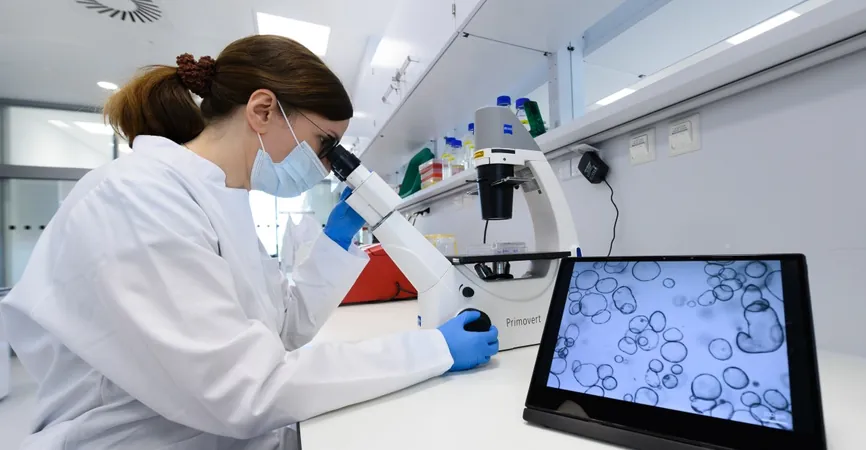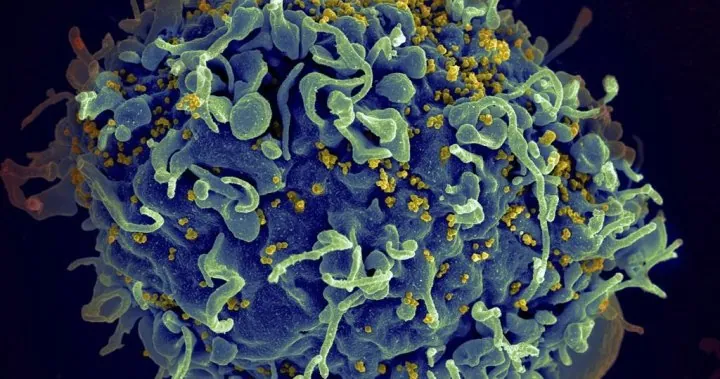
Unraveling the Alarming Surge of Cancer Cases Among Young People
2024-12-04
Author: Emily
A startling question has surfaced among the youth: What has caused the rapid increase in cancer rates among young people, particularly Millennials and Gen Z? This query has taken center stage in medical discussions, and the findings paint a troubling picture of rising cancer incidences in younger generations.
Recent analyses report that one in five new colorectal cancer patients in the United States is under 55, with this alarming statistic nearly doubling since 1995. A comprehensive review led by the American Cancer Society has shown that 17 out of the 34 most common cancers, including those affecting the small intestine, pancreas, and kidneys, are becoming more prevalent among younger individuals. Disturbingly, while death rates from colorectal cancer are declining among those over 65, they are increasing for younger patients—a trend that many experts find particularly concerning, as these cancers are often diagnosed too late for effective treatment.
But why is this happening? Unfortunately, experts are still grappling with this important question. What we do know is that certain risk factors play a significant role in the rise of early-onset cancers.
Understanding Cancer Risk Factors
Historically, body weight and physical activity have been known contributors to cancer risks. With global obesity rates surging since the mid-90s, especially in developed nations, this is believed to significantly influence the rise in gastrointestinal cancers among younger populations.
Moreover, new research hints that dietary choices are increasingly implicated in cancer incidence. Diets high in ultra-processed foods and excessive alcohol consumption have been linked to increased risks of early-onset colorectal cancers. Environmental toxins, including chemicals found in everyday products such as cosmetics and building materials, are also suspect culprits, with potential dangers exacerbated if exposure occurs during critical developmental periods of life.
In addition, a growing body of evidence suggests that sleep quality might impact cancer risk. Many individuals today suffer from irregular sleep patterns and insufficient rest, which could be disruptive to biological processes related to cancer development.
Andrew Chan, a leading researcher in early-onset cancers, emphasizes the importance of sleep and circadian rhythms in overall health. He notes, 'Changes in sleep patterns could affect our biology in ways that might make us more susceptible to diseases.'
The Microbiome and Global Context
The role of the microbiome—the diverse community of bacteria in our gut—has emerged as another intriguing aspect of cancer research. Certain strains of gut bacteria have been associated with gastrointestinal cancers, and researchers are trying to determine whether these microbiome changes are a cause or a consequence of cancer.
This growing epidemic is not just a challenge for developed nations. While wealthier countries see the most significant increases in young cancer cases, poorer nations are beginning to experience similar trends driven by environmental pollutants and lifestyle changes. As economies in developing countries improve, they too may face a surge in health complications typically associated with affluent lifestyles, including cancer.
Generational Shifts in Cancer Risk
Research suggests that the timing of one's birth may play an unexpected role in cancer susceptibility. Analysis by the American Cancer Society shows that individuals born in the 1970s are experiencing nearly double the rate of small intestinal cancers compared to those born 20 years earlier. For those born in 1990, rates are four times higher for certain cancers than for individuals born mid-century.
These generational disparities suggest that changes in diet, pollution levels, and lifestyle choices over the decades could be driving the increase in early-onset cancers. A study in the journal Gastroenterology noted that about 75% of new cancer patients report no family history of the disease, pointing to environmental and lifestyle factors as vital contributors.
The Role of Microplastics and Hormonal Disruption
Emerging research points to microplastics as another potential factor in rising cancer risks. These tiny particles, prevalent in everything from food packaging to cosmetics, are found everywhere in our environment and have been shown to promote tumor growth in laboratory settings. The correlation between increased cancer cases in younger adults and heightened microplastic exposure might not be mere coincidence.
Moreover, exposure to various risk factors during critical developmental periods—whether in utero, childhood, or early adulthood—can have lasting effects on cancer risk. Initial findings suggest that a diet high in sugary beverages during adolescence is linked to elevated risks for colorectal cancer in women.
Conclusion: Moving Forward
Researchers continue to work diligently to understand the myriad risk factors contributing to the increase in cancer among young adults. While answers remain elusive, traditional health recommendations still hold value: maintaining a balanced diet, reducing alcohol intake, and ensuring regular physical activity can positively impact overall health and reduce cancer risk.
As the medical community investigates these complex issues, young people are encouraged to stay informed and proactive about their health. The stakes are high, but through awareness and lifestyle modifications, we can combat the rising tide of cancer in our generation.









 Brasil (PT)
Brasil (PT)
 Canada (EN)
Canada (EN)
 Chile (ES)
Chile (ES)
 España (ES)
España (ES)
 France (FR)
France (FR)
 Hong Kong (EN)
Hong Kong (EN)
 Italia (IT)
Italia (IT)
 日本 (JA)
日本 (JA)
 Magyarország (HU)
Magyarország (HU)
 Norge (NO)
Norge (NO)
 Polska (PL)
Polska (PL)
 Schweiz (DE)
Schweiz (DE)
 Singapore (EN)
Singapore (EN)
 Sverige (SV)
Sverige (SV)
 Suomi (FI)
Suomi (FI)
 Türkiye (TR)
Türkiye (TR)